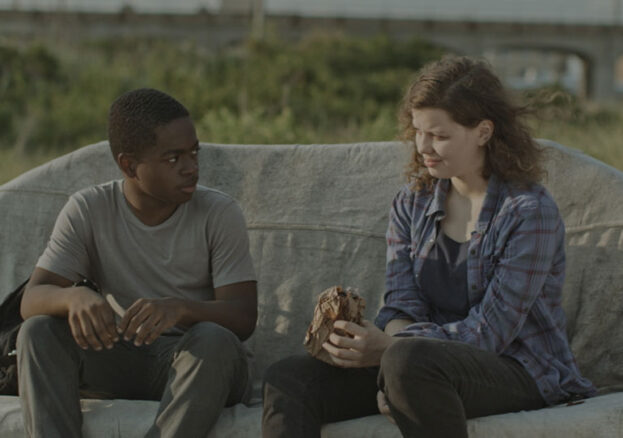New Release: The Transfiguration
Tom Grieve, Cinema Editor
African-American teenager Milo (Eric Ruffin) is an orphan, living with his veteran elder brother in a dilapidated high-rise on the New York fringes, where he tries to avoid bullies and local gang-members on his way home from school. He loves horror movies and watching gross animal videos on his computer. Where Milo differs from other troubled teens, however, is in his belief that he is a vampire — a belief that manifests itself in periodic trips out of his neighbourhood to kill people and drink their blood.
But Milo can’t even keep the blood down without throwing up, and it becomes apparent that this “thirst” is an attempt to deal with the trauma of death – his father died following a long, agonising illness and his mother committed suicide – by mastering it. When white teenager Sophie (Chloe Levine) shows up with a similarly unfortunate history, a budding romance briefly offers Milo a different trajectory. (Their first date? A trip to see Nosferatu at an art-house cinema.) Of course, it’s not long before reality intervenes, and the combination of a gangland murder and Sophie’s discovery of Milo’s notebooks throw a spanner in the works.

Milo pooh-poohs Sophie’s suggestion that he read Twilight or watch True Blood. He prefers his vampires “realistic” and cites George A. Romero’s Martin and Kathryn Bigelow’s Near Dark as examples of fiction that get it right – but after referencing such works, it’s noticeable that The Transfiguration lacks both their style and sense of bombast. The camerawork is more anonymous here, and whilst the synth-score does provide mood and tension occasionally, the film is content for the most part, to merely document, without judgement, the way in which Milo’s bloodlust integrates with his life as an awkward teen in a crime-filled neighbourhood.
The Transfiguration was a surprise inclusion in the Un Certain Regard strand at Cannes last year, with its first time Brooklynite director Michael O’Shea displaying a deft touch for slow-burn genre material. The film succeeds primarily as a compelling renewal of vampire mythology. In juxtaposing the horror of fantasy violence and the everyday violence done in a large American city, O’Shea proves that there’s still room for fresh takes on well-worn tropes.





























